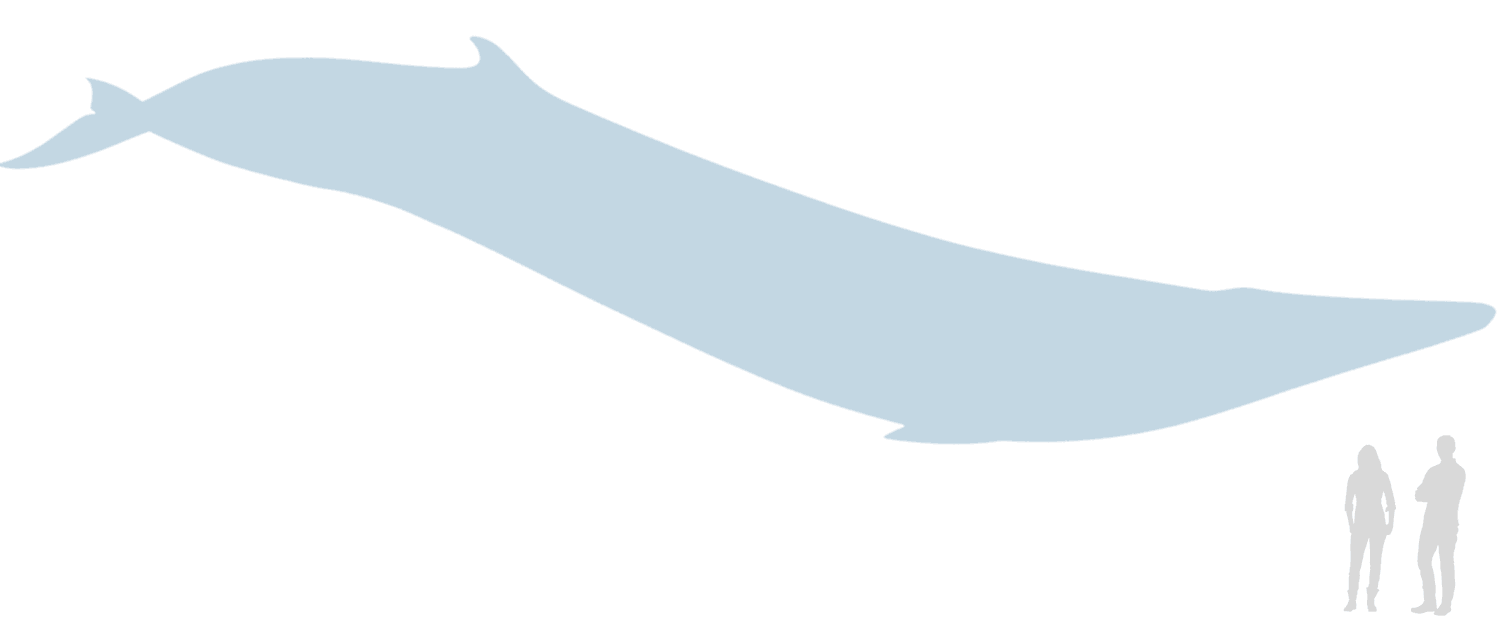
Fin Whale
Balaenoptera physalus
Scientific Classification
| Kingdom | Animalia |
|---|---|
| Phylum | Chordata |
| Class | Mammalia |
| Order | Cetartiodactyla |
| Suborder | Mysticeti |
| Family | Balaenopteridae |
| Genus | Balaenoptera |
| Species | physalus |

Fin whales are about 70 to 85 ft long (21 to 26 m) and can weigh 40-80 tons (36,300 to 72,600 kg)!
They can live up to 90 years!
Fin whales feed on krill, schooling fish (herring, capelin, etc) and squid. They skim the water or lunge into schools of prey with their mouth wide open.
Fin whales have worldwide distribution, mostly in the deep, offshore waters of all major oceans. They occur primarily at temperate to polar latitudes.
Threats to Fin Whales
Boat collisions, fishing & harvesting of aquatic resources, anthropogenic (human-created) noise
Current Population Trend Increasing
 |
Conservation Status The IUCN Red List tracks the conservation status of organisms around the world. Visit the Red List to learn more about the conservation of fin whales. |
OCS Research Insights
Recently, we’ve recorded fin whales feeding close to the Los Angeles shoreline. Unfortunately, we have also seen them being harassed by recreational boats.
Report whale or dolphin harassment
Learn more about OCS research
Some fin whales have skin lesions, possibly caused by sun exposure.
Off Southern California, their movements overlap with shipping lanes, increasing the risk of collisions with ships.
Fin Whale Facts
• Fin whales are the second-largest mammal in the world.
• They can swim up to 23 miles per hour (37 km/hr).
• They have accordion-like throats that help them gulp up to 2 tons (1,800 kg) of food per day!
SUPPORT CONSERVATION
Protect whales and dolphins now and for future generations
TAKE ACTION!
Here's how you can help
Learn Safe Observation
Learn how to safely observe whales, dolphins and other marine mammals - whether from a boat, surfboard or when kayaking or swimming.
Report Injuries or Harassment
Know who to contact if you encounter marine animals who are injured, in distress, or those being harassed by humans or boats.
Support Marine Research
OCS conducts one of the longest-running investigations on wild dolphins and whales existing worldwide. Learn more about research projects that help ensure the protection of these animals for generations to come.
Share Your Knowledge!
Ocean conservation starts with education. Share this page by copy/pasting its URL into your social media accounts to educate others about the magnificent marine mammals we share our planet with.
whale and dolphin species drawings © Massimo Demma / ICRAM / Muzzio
